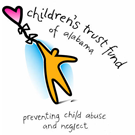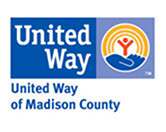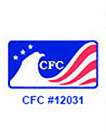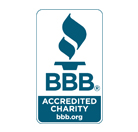Thank you for your interest in attending a training at The National Children's Advocacy Center (NCAC). We have recently restructured our training courses, however our mission remains to improve the skills of forensic interviewers and raise the standard of practice in the field. Below is a list of our most frequently asked questions and their respective answers.
If you cannot find your question below, please submit your inquiry to Sydney McDonald or call 256-327-3745.
The National Children’s Advocacy Center Forensic Interviewing Training offers a flexible protocol for interviewing child witnesses that is largely informed by research and evidence-based practice guidance while recognizing that all elements of forensic interviewing do not have clear direction provided by research. Additionally, interviews may need to be adapted to the cultural, linguistic, developmental, and trauma symptoms of child witnesses as well as case complexities.
Beyond the Basics trainings provide an opportunity for a forensic interviewer and their supervisor to select the additional training that best fits the interviewer’s needs for development and growth in interviewing skills.
Advanced Forensic Interviewing now consists of Beyond Basic Forensic Interviewing Courses. These courses offer the opportunity for the forensic interviewer and their supervisor to make more focused and thoughtful decisions about the next steps in training and knowledge that will add to the interviewer’s skills and practice.
Previously, NCAC identified our trainings by two labels:
- Basic Forensic Interviewing – an interviewer’s introduction to forensic interviewing
- Advanced Forensic Interviewing – any training that was not a BFI
There were several issues with using the label “advanced FI training.”
- There was no set agenda or list of topics that comprised an advanced training.
- Most advanced training agendas were composed of multiple topics that only minimally addressed the topics included.
- This approach was less likely to move the interviewer’s practice forward as opposed to more in-depth coverage and opportunities for application.
- There was concern about the possible implication that an interviewer’s training path was completed once they attended a BFI and an AFI.
- AFI training groups were often composed of participants with a wide range of experience and skill development making it challenging for instructors to target the needs of participants.
NCAC’s Pathways Approach
The initial FI training will no longer be labeled as “basic” but will provide the same solid introduction to forensic interviewing for new interviewers. For participants who have previously completed another FI model, it can add to their understanding of the approach and reasoning behind the NCAC CFIS.
All Beyond Basic Forensic Interviewing Courses will require that a forensic interviewer has completed an initial course in forensic interviewing (NCAC CFIS or another model) and is actively engaged with forensic interviewing.
Each course offering will provide more in-depth coverage of a designated topic with lectures, demonstrations, exercises and activities, and opportunities to make a connection between the interviewer’s current practice and the topic.
Class sizes will be limited to allow for more inclusion and interaction.
NCAC instructors will provide guidance in course description as to “goodness of fit” between the participant and the designated course without attempting to control a participant’s choice.
We recommend the Building a Solid Foundation course for less experienced interviewers or those interviewers needing to refresh their skills.
Forensic interviewers in consultation with their supervisors will be able to select the Pathway course that most closely fits the next step in their skill development and confidence.
NCAC will promote a more thoughtful and deliberate model for developing forensic interviewers in their professional development.
Research in the last ten years has provided additional support and guidance for conducting multiple interviews of child witnesses for different reasons. While there can still be a place for a structured extended forensic interview, many options are open for anxious children in need of additional rapport as well as adding additional sessions for children with complex histories. This training is being replaced by a Beyond the Basics course on conducting interviews over multiple sessions. Look for More Than One Interview: When, Why, and How on the curriculum page.
Forensic Interviewing of Children Training is an introductory course open to professionals who are or will be currently conducting forensic interviews of children within a multi-disciplinary context.
Advanced Forensic Interviewing: Beyond Basic Forensic Interviewing Courses are open to experienced interviewers who currently conduct forensic interviews of child witnesses and who work with a multidisciplinary team. Beyond Basic Courses are NOT protocol specific.
We will offer a variety of trainings in-person and/or virtually in 2023! Please review the Professional Services Forensic Interview Training Opportunities to determine which Forensic Interviewing of Children and Advanced Forensic Interviewing: Beyond Basic Forensic Interviewing Courses will be held in-person or virtually.
Participants registered for the initial Forensic Interviewing of Children Training are expected to complete six hours of pre-work, consisting of selected readings and interactive recorded exercises to be done at their own pace. This material will be available two weeks ahead of the training and will need to be completed prior to the first official training day.
The Beyond the Basic Forensic Interviewing courses require the completion of a nationally recognized forensic interview training. If applicable, recommended prerequisites are included in the course descriptions.
National Children’s Advocacy Center
210 Pratt Ave. NE
Huntsville, AL 35801
The Professional Services training building is the stone building located on the corner of Howe Avenue NE and Dallas Street NE.
The Forensic Interview of Children Training provides 32 hours which meets the 2023 NCA Standards. Advanced Forensic Interviewing: Beyond Basic Forensic Interviewing Course hours will vary by training. Course agendas and bios will be available for participants to independently apply for continuing education.
We are currently unable to offer scholarships for training courses at this time.
Yes! Beginning in 2023, Tribal Nation Child Advocacy Centers (CACs) who are affiliate or accredited members with the National Children’s Alliance are eligible for a 25% discount. Please send an email to the training coordinator for assistance.
Yes! Developing countries are eligible for a 25% discount. Please send an email to the training coordinator for assistance.
We do not offer Continuing Education Credits. Participants who attend all course sessions and complete all assignments will receive a Certificate of Completion. It may be possible to submit documentation to your licensing board or agency for credit (please check with your organization to see if this option is available to you).
The process of becoming a skilled forensic interviewer is ongoing and is not achieved through attendance of one training, so we encourage interviewers and their supervisors to explore our Beyond Basic Forensic Interviewing courses.
Our trainings are designed for professional education and development. Participants who have successfully completed a course will receive a Certificate of Completion and meet the training requirements set by the National Children’s Alliance Standards for Accreditation.
To obtain an official duplicate Certificate of Completion for a training hosted by NCAC, attendees must submit a request form and $15.00 fee. Payment may be submitted electronically or by mail.
- Due to the volume of requests for duplicate completion certificates, receiving your certificate may take up to two weeks.
- Registration and attendance records are only kept on file for six (6) years. We are not able to honor requests for certificates for training or conferences that happened more than six years ago from today’s date.
- Duplicate certificates are available only for trainings and conferences hosted by NCAC.
Duplicate completion certificates are $15.00. Please consider your request carefully before submitting a form and payment, as there are no refunds for this service.
Electronic Submission: Submit a request form online. An invoice will be sent to you to pay electronically. Requests are processed upon receipt of payment.
Paper Submission: Contact NCAC for a paper request form at conted@nationalcac.org or 256-327-3781.
All certificates will be sent via email unless otherwise requested.
No. We train forensic interviewers who are employed at a Children’s Advocacy Center and conduct interviews of child witnesses within a multidisciplinary team response to child maltreatment.
No. We train forensic interviewers who are employed at a Children’s Advocacy Center and conduct interviews of child witnesses within a multidisciplinary team response to child maltreatment.
Currently, we only offer Forensic Interview training for professionals whose primary role is conducting Forensic Interviews as a part of the multidisciplinary response to child maltreatment. We recommend you reach out to your local Child Advocacy Center to see what interview structure they use and what training they provide within your area. You may find your local CAC by going here.










